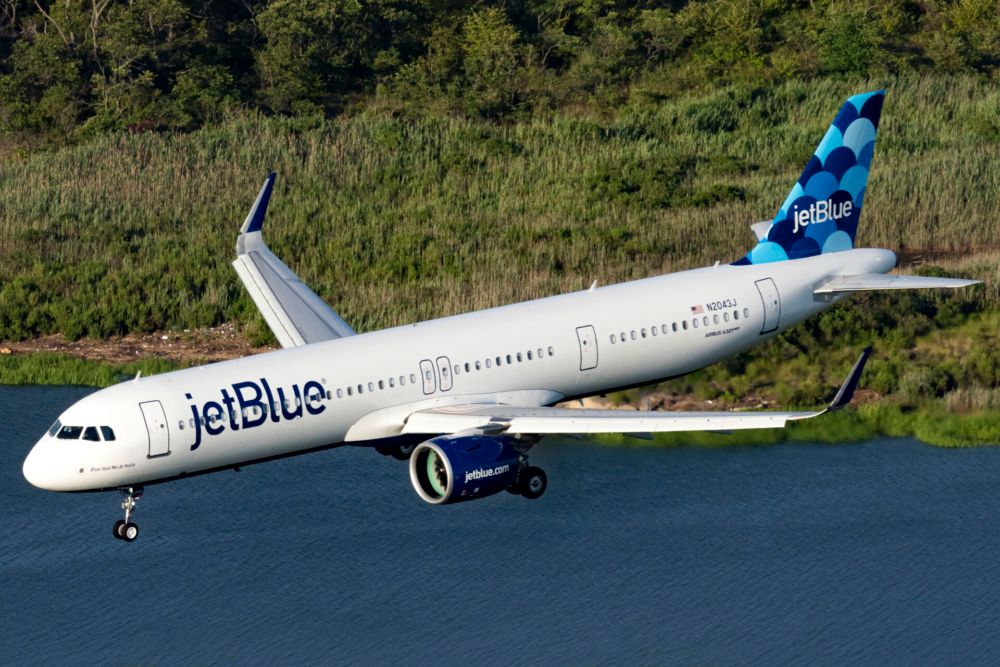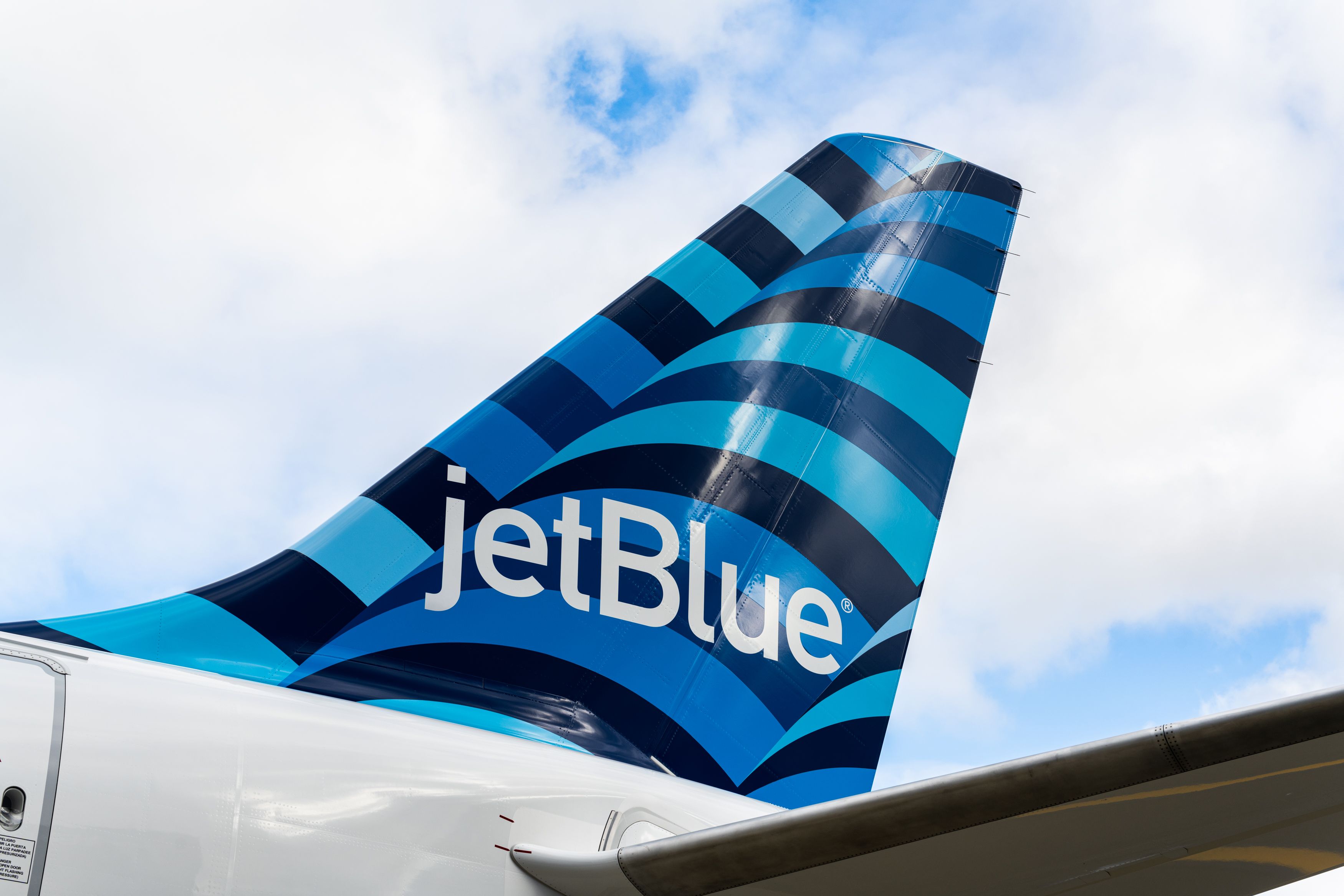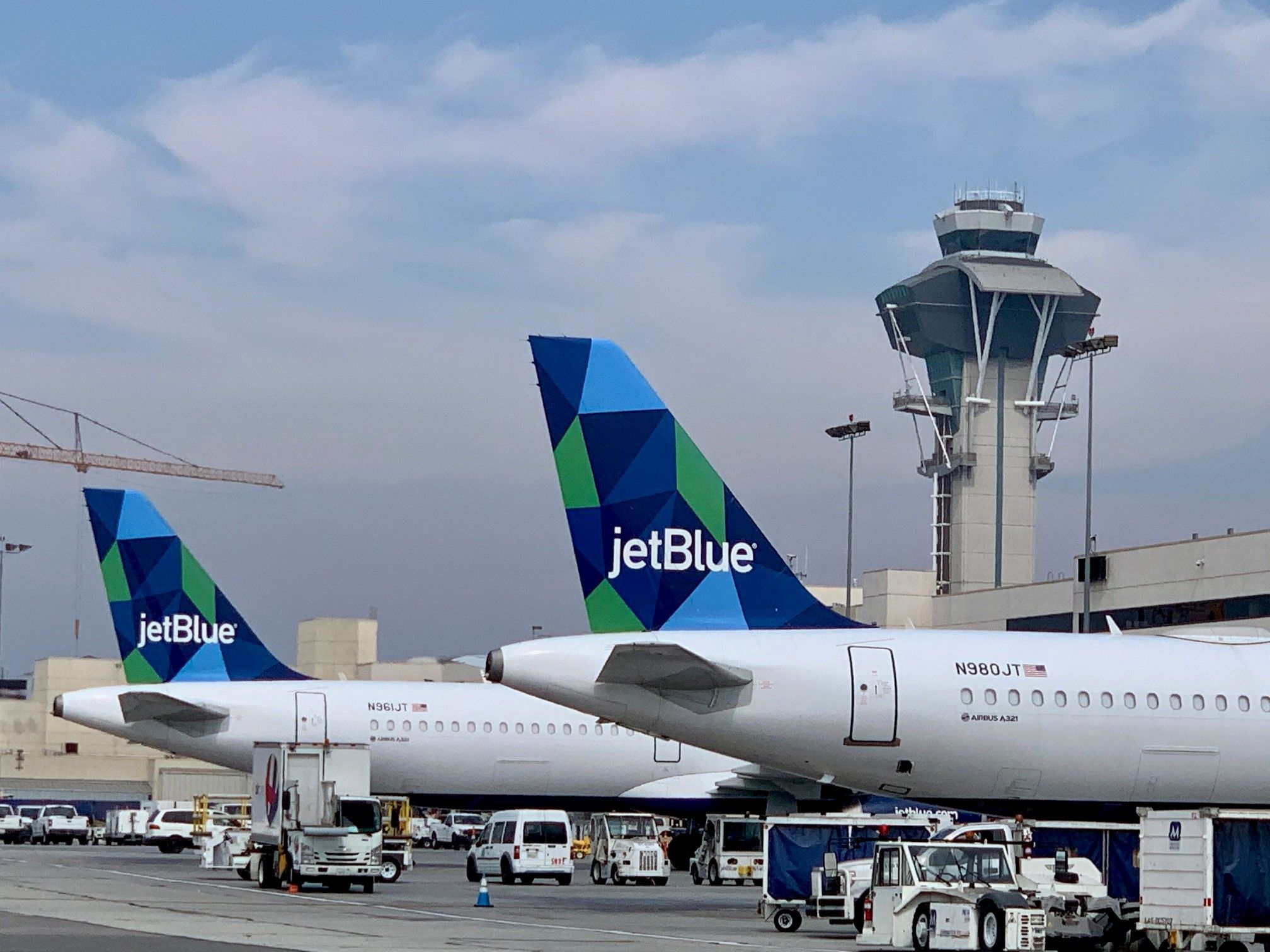JetBlue Airways announced on Tuesday that it will partner with Shell Aviation to bring an additional supply of sustainable aviation fuel (SAF) to Los Angeles International Airport (LAX). The airline said it expects delivery of the fuel in the first half of this year.
As the agreement outlines, JetBlue will handle 10,000,000 gallons of blended SAF at LAX over the next two years. The carrier also has an option to purchase up to an additional 5,000,000 gallons in the third year, either at LAX or other airports it flies to.
What is SAF?
SAF is a renewable fuel that can be used directly by aircraft with no impact to safety or performance. The specially blended fuel can be produced from various renewable sources, such as agricultural waste and cooking oils. While used, it can lower lifecycle greenhouse gas emissions by roughly 80% compared to traditional petroleum-based jet fuels.
JetBlue’s CEO, Robin Hayes, spoke about the airline’s new collaboration with Shell Aviation.
“We’ve long said we need multiple key stakeholders to step up to reach our aggressive emissions reduction goals. This deal with Shell is a key signal of the growing engagement of the major fuel producers to begin converting conventional jet fuel to SAF. Shell’s involvement, with their expertise in energy markets and logistics, is a validation of the SAF market’s potential and highlights how critical the SAF transition of our hard-to-decarbonize industry is to establishing a more sustainable future of flight.”
Get the latest aviation news straight to your inbox: Sign up for our newsletters today.
Decarbonizing flight
By 2030, Shell plans to have SAF take up 10% of its aviation jet fuel sales. The company is building supply chain capabilities to blend the fuel, handle, and distribute it to meet its goal. Ultimately, the company hopes distribution will enable more customers to access SAF, which would help accelerate decarbonizing the aviation sector.
Shell Aviation President Jan Toschka said the company’s partnership with JetBlue is essential.
“It’s terrific to be supporting JetBlue once again in its decarbonization efforts. Like Shell, JetBlue understands that SAF will be the key technology to help decarbonize flight,” Toschka said. “LAX is a critical North American airport hub and we’re delighted to be able to provide JetBlue and corporations on its Sustainable Travel Partners program access to SAF, allowing them to lower their emissions while jointly contributing to investments in SAF.”
The availability of SAF
JetBlue aims to reach net zero emissions by 2040, which it says is ten years earlier than industry targets. The airline also said its efforts and other existing sustainability commitments would apply to the carrier’s planned integration of Spirit Airlines into its operation.
“Working with Shell will not only help grow the availability of SAF in the long-term, but also ensure this transition is sustainable from a business perspective, by building the connections and infrastructure to help keep the cost of SAF competitive with traditional fuel,” said Sara Bogdan, JetBlue’s Director of Sustainability and ESG (Environmental, Social, and Governance).
The carrier said it will continue to do its part to encourage a diverse and competitive SAF market and promote the build-up of available supply and the economies of scale needed for SAF prices to compete with traditional fuel sources.



